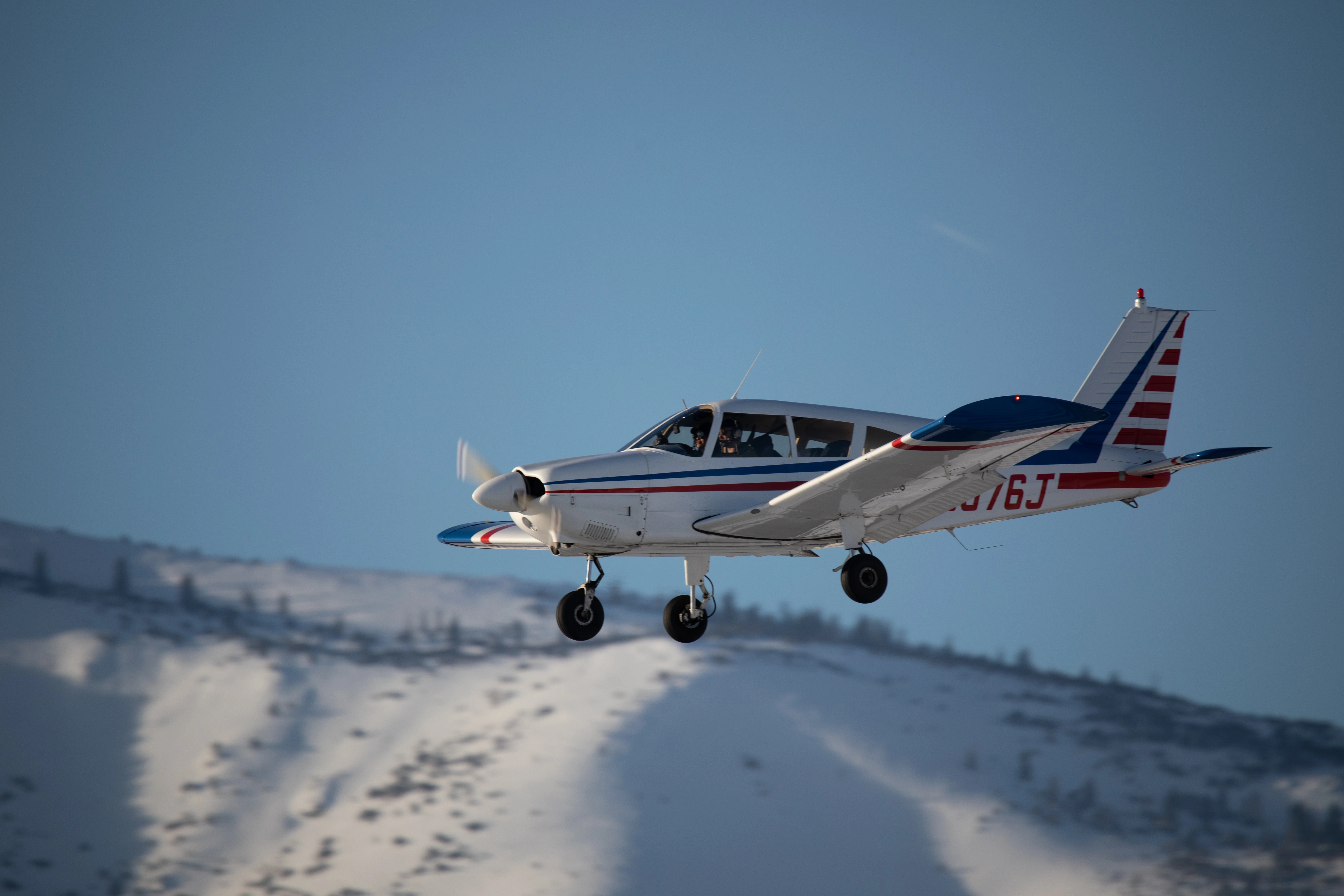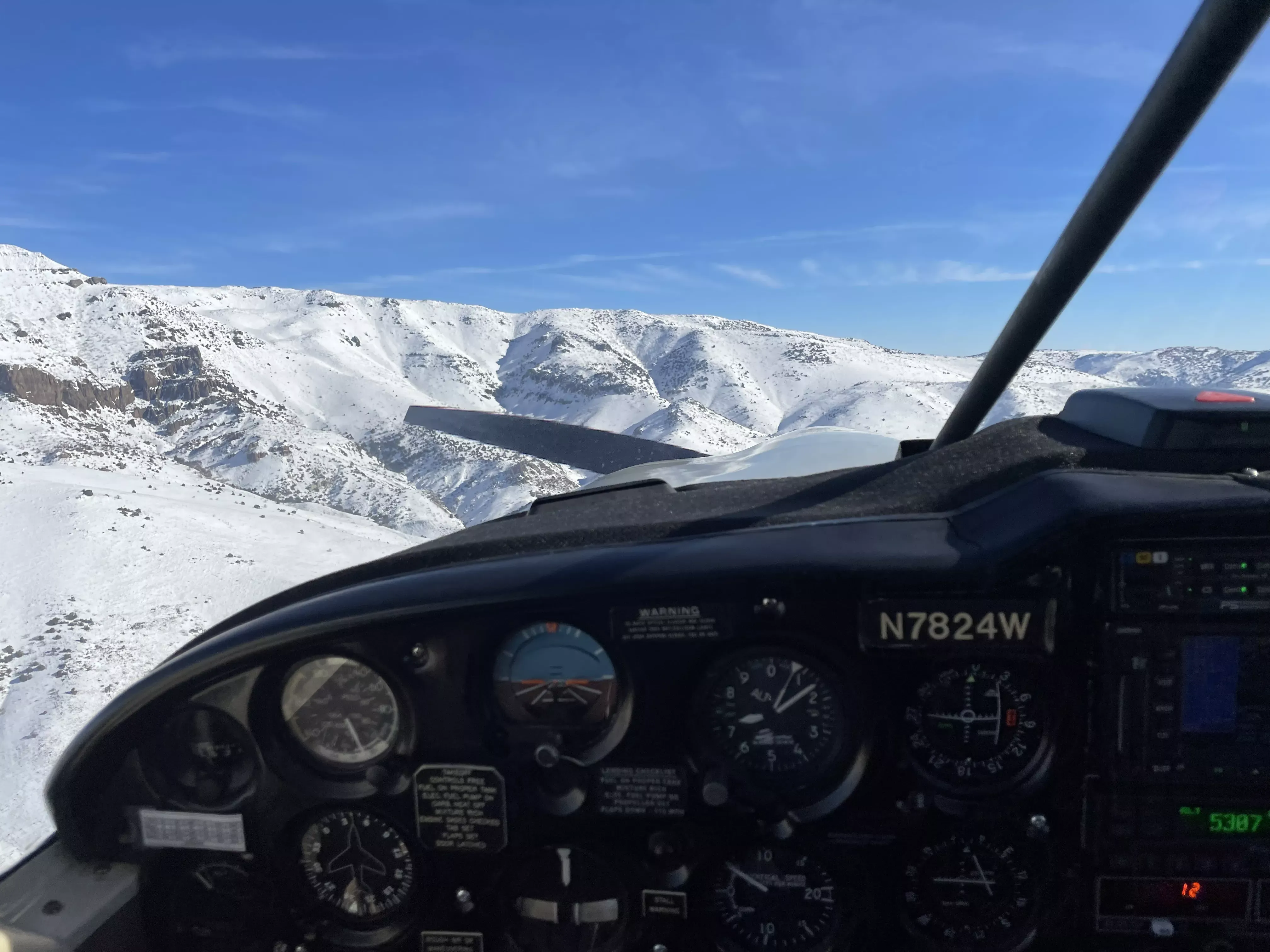Program Overview
What you'll learn
- Density altitude (DA) performance planning and takeoff/landing technique
- Mountain weather: winds aloft, mountain waves, rotors, lenticulars, convective activity
- Terrain/obstacle awareness, route selection, and emergency options
- High-altitude airport operations and stabilized approach profiles
- Short/soft-field technique refinement and go-around discipline
- Risk management (PAVE/5P), personal minimums, and go/no-go frameworks
Training structure
Training combines ground lessons, flight sessions, and stage checks aligned to the ACS (Aviation Certification Standards). Individual and accelerated pacing are available depending on instructor and aircraft availability.
Outcomes
- Plan and execute safe mountain routes within clearly defined personal minimums
- Apply performance charts for high-elevation, high-DA departures and arrivals
- Interpret mountain weather hazards and choose conservative routing
- Use stabilized approaches and energy management at terrain-confined airports
- Eligible for mountain checkout sign-off at instructor discretion upon satisfactory completion
Prerequisites
- Private Pilot (Instrument rating recommended)
- FAA medical (3rd Class or BasicMed equivalent)
- Recent PIC experience and familiarity with short/soft-field operations
Course Snapshot
- Duration: 3 days
- Training: 15 hours dual instruction · 5 hours ground instruction
- Investment: $4,500.00
- Typical Training Airports: TRK (Truckee), TVL (South Lake Tahoe), MMH (Mammoth Yosemite), weather dependent *
*Note: Actual routing depends on winds, weather, airspace/TFRs, airport NOTAMs, runway conditions, and instructor discretion.
Airports & Routes
- TRK – Truckee Tahoe (KTRK): Terrain-confined pattern, density altitude, winds over ridgelines.
- TVL – South Lake Tahoe (KTVL): High-elevation operations, pattern management near terrain and lake effects.
- MMH – Mammoth Yosemite (KMMH): High field elevation, mountain wave/rotor awareness, performance margins.
What You’ll Learn (3-Day Outline)
Day 1 – Ground Foundations & Local Mountain Ops
- Ground: mountain weather, winds aloft, waves/rotors/lenticulars, DA performance, conservative route planning, emergencies.
- Flight: local terrain orientation; short/soft-field refresh; performance testing; approach stabilization and go-around discipline.
Day 2 – Truckee & Tahoe
- Ground: cross-country planning and alternates; terrain corridor selection; briefing NOTAMs/TAFs/Winds Aloft.
- Flight: TRK and TVL (as conditions permit); terrain-confined patterns; stabilized approaches; missed/escape routes.
Day 3 – Mammoth & Scenario Work
- Ground: risk management (PAVE/5P), personal minimums, oxygen/physiology awareness (advisory), debrief of contingency plans.
- Flight: MMH (as conditions permit); route and altitude selection; energy management; diversion drills; full debrief and plan to maintain proficiency.
Bring & Be Ready
- Current gov’t photo ID, pilot & medical certificates, logbook
- Headset, kneeboard/EFB with current charts, performance data
- Personal minimums template (We’ll help you refine it.)
- Season-appropriate clothing and hydration
Policies & Safety Notes
- Mountain checkout: NV Flight rental policy requires a mountain-flying checkout with an NV Flight instructor before renting for mountain flights. This course prepares you for that sign-off; issuance is at instructor discretion.
- Performance/DA limits: We brief and operate within NV Flight rental limits and airport/aircraft performance requirements; departures are never conducted outside published or company limits.
- Weather first: All cross-country segments are weather-permitting; alternates or local scenarios may be substituted to meet learning objectives.
Next Steps
- Have dates in mind and recent PIC time? Contact us to confirm instructor/aircraft availability.
- Want to prep early? We’ll share recommended study materials so you show up ahead of the curve.

